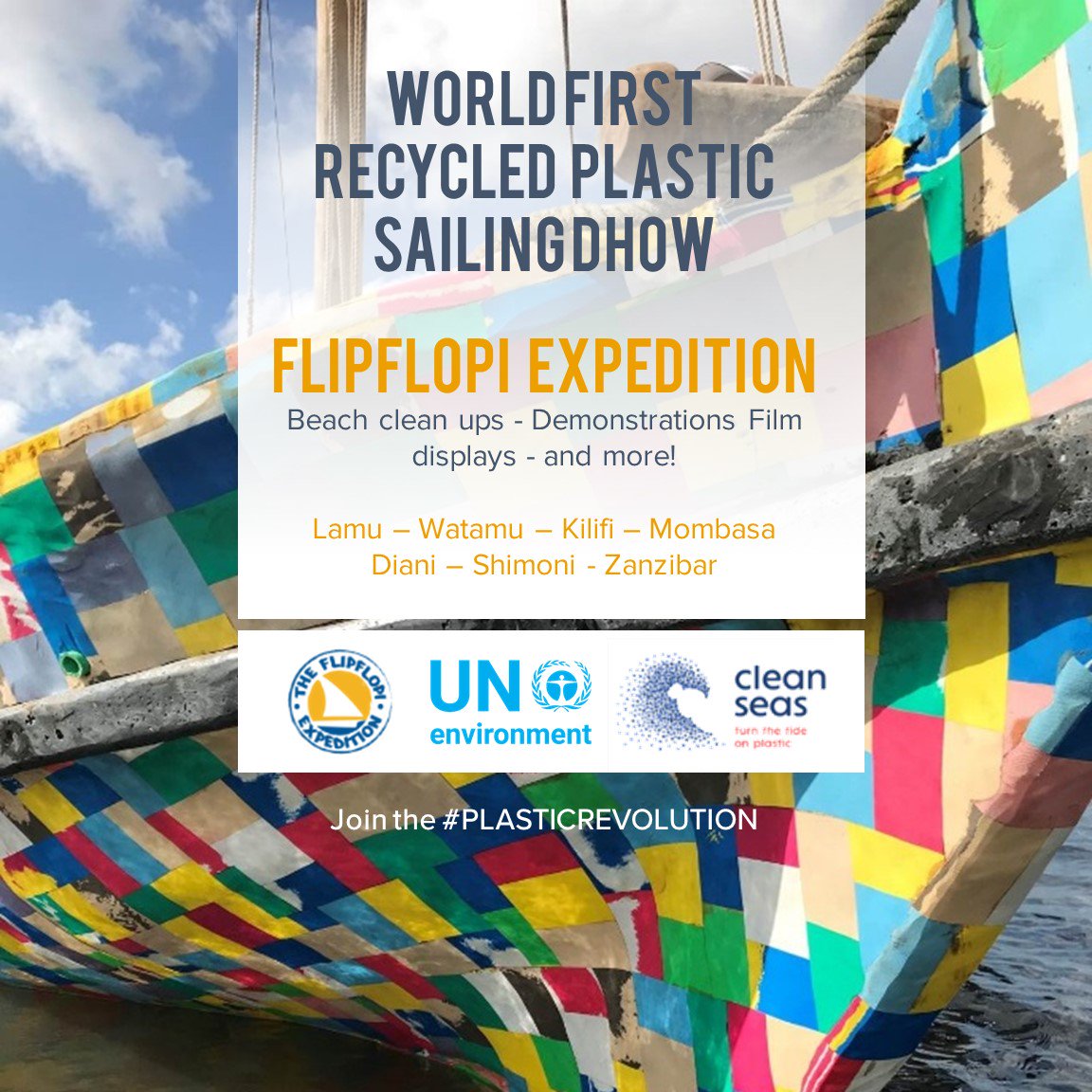
As a world first initiative, the globe will look towards the Indian Ocean coastline from Lamu to Zanzibar – a 500 kilometre expedition in a boat made from plastic waste and flipflops, from January 24th to February 7th to raise awareness about single-use plastic and marine plastic pollution.
The world’s first recycled plastic dhow will set sail on its expedition along Africa’s coast to raise awareness about single-use plastic on January 24th.
Learn more about @theflipflopi 👉 https://t.co/RgOGvUmXPO#CleanSeas pic.twitter.com/T5xOuBhiJ8— UN Environment (@UNEnvironment) January 15, 2019
Backed by UNEP Clean Seas Initiative, the FlipFlopi will sail south along the coasts of Kenya stopping in Watamu, Kilifi, Mombasa, Diani and Shimoni holding events in partnership with local organisations and communties, before crossing into northern Tanzania with planned stops on Pemba Island, and onwards into Stone Town, Zanzibar to arrive for the International Busara Music Festival
The FlipFlopi is a first-of-its-kind, 9 metre sailing boat made from 10 tinnes of discarded plastic. The brain child of Ali Skanda and Ben Morison has been built by a team calling for a #PlasticRevolution to stem the flow of up to 12 million tons of plastic waste dumped into the world’s oceans each year and to highlight the potential for plastic to be re-used.
 The dhow was launched in the late 2018 in Lamu and has now partnered with UN Environment’s Clean Seas campaign, which engages governments, the public and the private sector in the fight against marine plastic pollution. Nine African countries have already signed onto the campaign, promising to take action to tackle marine pollution.
The dhow was launched in the late 2018 in Lamu and has now partnered with UN Environment’s Clean Seas campaign, which engages governments, the public and the private sector in the fight against marine plastic pollution. Nine African countries have already signed onto the campaign, promising to take action to tackle marine pollution.
It’s important to note that only 9% of the nine billion tinest of plastic the world has ever produced has been recycled. The overwhelming majority of plastics – including plastic drinking bottles, plastic bottle caps, food wrappers, plastic grocery bags, plastic lids, straws and stirrers – are designed to be thrown away after single use, ultimately ending up in landfills and the environment.
Nearly 2 years after Kenya introduced the world’s toughest laws on single-use plastic, the FlipFlopi project is playing a vital role in rngsenga the public at large in thinking about plastic differently.


















